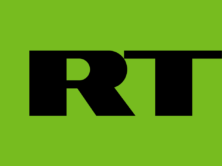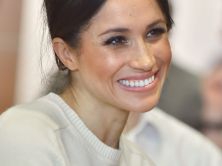
The Turkish website Media Ethics Platform publishes statements about Turkish media a few times a week, according to Yonca Poyraz Dogan. (Credit: Medyaetik.net, screenshot)
Turkish journalists and academics discussed the media’s effect on children at an April 5 workshop “Medya ve Çocuk” (Media and Children), Today’s Zaman reported.
The workshop put forth “10 steps for eliminating the media’s negative influence on children and teenagers,” according to Today’s Zaman. The recommendations included calling for journalists to factor in “The physical, emotional and psychological health of children … when reporting on children’s issues.”
Another recommendation: “All gender, race, language or faith-based discrimination should be removed from media.”
Also at the workshop, Istanbul University associate professor Seda Mengü argued that the media fails to follow journalism ethics guidelines relating to reporting on children. For example, according to a study Mengü conducted on media reporting on children, the media “frequently” will identify minors in stories “on violence, sexual abuse or robbery incidents,” according to Today’s Zaman.
We wrote to Mengü asking more information about her research. In an e-mail to iMediaEthics, she explained that the study was “mainly based on the content analysis of the news about children issued on the third pages of Posta and Sabah between July 25 and August 27, 2007, which had the highest circulation rates during that period.” She explained that “third-page-journalism refers to the news…usually about judicial events, such as violence, murder, rape, theft, mugging, accident and fire.”
Turkey’s press law calls for fines for news outlets identifying minor-aged “offenders and injured parties,” Mengü wrote, but the study found news outlets violate that law.
Further, she explained that the study determined that minor-aged victims were identified “with such adjectives” as “small and sweet,” “little” and “poor.” Minor-aged “delinquents” were identified in negative terms like “young thief” and “convicted youngster.” The study also found, according to Mengü, that only negative news about children was reported. She explained:
“In the news we have analyzed, there was simply no news about the achievements of children either in education or in social and cultural life. In fact, children are displayed as bad examples for society; in the same way, the social position of children who appear on the third pages of newspaper at early age is somehow ignored as well.”
Mengü also provided several recommendations for media’s reporting on and representation of children. She called for newspapers to “be more careful about the way they handle children,” for more “educative, informative and guiding news” than violent news on the third page and for sensitivity with use of photos and stories given children. She also called for newspapers to “be more considerate” when identifying children by photographs and names.
Further, Mengü wrote:
“As a final word, the primary function of the press at the point should give more importance to the news pertaining to information, education and guidance children and young people rather than salaciously spreading news about them as humiliated, harassed, abused, molested, accused and aggrieved ones.”
Concerning the workshop, Mengü advised that future workshops have “more participants” and be held “more frequently.”
More on Media Ethics Platform
We also wrote to Turkish journalist Yonca Poyraz Dogan, of Today’s Zaman, asking about the status of Media Ethics Platform.
As we wrote last year, the platform is a new website to promote media ethics case studies and news. The site was started after an International Center for Journalists and Medya Dernegi workshop promoting media ethics. Baris Soydan, “one of the founders of Media Ethics Platform” and Sabah newspaper’s managing editor, sent us the group’s history and “manifest” which identifies “serious structural problems in Turkish media regarding ethics.” He explained that the platform wants to “create a guide for ethical news media language” but is trying to find funding.
The platform identifies its “main purpose” as “to bring ethics to the journalism agenda, to strengthen and to become a reference institution for media ethics.” The platform publishes “statements that remind media authorities about unethical news practices” like photojournalism ethics.
According to information sent by Soydan, the platform was set up “by a group of journalists who think that the major problem of Turkish media is its lack of concern for media ethics.” The platform is run by journalists “who work for different media outlets” but work as “volunteers” for the platform.
Dogan, from Media Ethics Platform, told iMediaEthics that the platform didn’t participate in the workshop on reporting on children, but that it has been active in monitoring media coverage. She explained that the platform has released about “1-3 statements” a week on “ethical issues in the Turkish media.
Statements are published here, and also e-mailed to media outlets, according to Soydan.
“We noticed that there is a misunderstanding in the media regarding hate speech/hate crimes as people tend to categorize any harmful speech as hate speech or hate crimes.”
The platform’s manifest explains:
“We were told to write about the ‘bloody’ details of murders, to write vividly about ‘pornographic’ details of rape stories; we were told that circulation and ratings come first and media ethics can be set aside. MEP rejects all of these ideas for they are false.”
“MEP was founded to defend journalism ethics against lies.”
According to Soydan’s e-mail to iMediaEthics, one project the platform has planned for this year is the creation of “a guide for noting and removing discriminatory language in media.”






